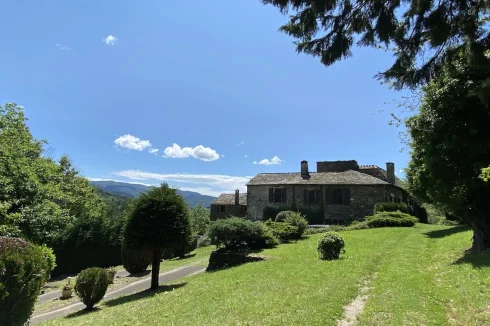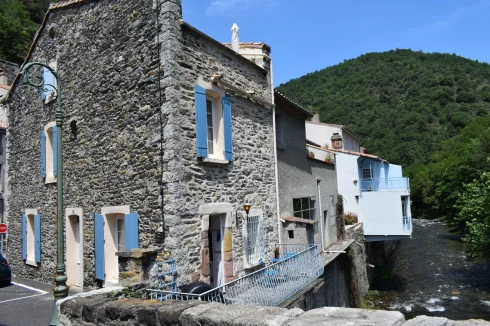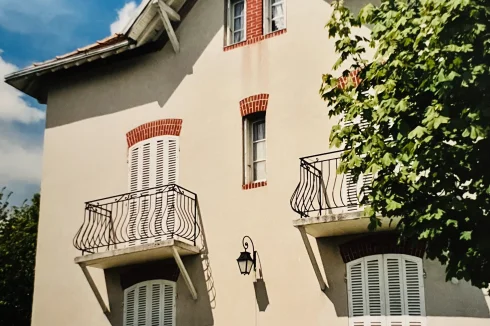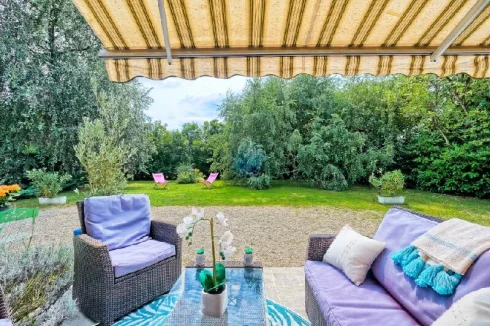Selling at 'Vide-Greniers' - French Car Boot Sales
Friday 08 November 2019
What are the regulations governing the sale of articles and produce at French car boot sales?
French car boot sales are a popular activity for many expatriates, both as buyers and as sellers.
Although they started in a small, unregulated way for local inhabitants to sell unwanted items from their homes, vide-greniers (literally 'empty attic') have become something of a national pastime and an important part of the social economy.
They are major events in a village, which are often combined with entertainments, or linked to the annual village fete.
The number of stalls ranges widely, often hundreds, and can bear no relation to the size of the village hosting the event.
You will see advertisements for them in the local press, but they will just as often be advertised by roadside notices and mairie noticeboards and leaflets. They are also listed in consolidated websites, such as Vide Greniers.
You might see them advertised as 'Puces', 'Braderies', 'Bric-à-Brac', 'Brocantes' or 'Trocs'. Strictly speaking, each of these terms has its own specific meaning but many of these differences have largely broken down over recent decades.
Private or Professional Seller?
With the growth in the number and size of the events, and changes to the nature of business activity, the distinction between different types of markets has become blurred and today many professional sellers use vide-greniers.
The effect on the nature of the items being sold has been significant, for it is now not unusual to see good quality antique objects, tools, produce, crafts and brand-new manufactured items on sale.
In the specific and very limited domain of vide-greniers you are considered to be a private vendor if the items you are selling were previously owned and used by you. As a result, the income you earn need not be declared to the tax authority.
However, if you purchased the items with the specific intention of on-selling them for profit you are engaged in a commercial activity and therefore should be professionally registered.
The same would apply if you were selling items that you had produced, with the specific objective of on-selling for profit.
Due to the significant numbers of professional sellers now using vide-greniers, in a largely cash-based environment, in recent years the authorities have become concerned that vendors who were effectively engaged in a business activity were hiding what should have been taxable income.
The result is that the rules now limit private individuals to selling at no more than two such sales each year. This same rule does not apply to those who operate a registered business, with the law expressly stating:
'Les particuliers non inscrits au registre du commerce et des sociétés sont autorisés à participer aux ventes au déballage en vue de vendre exclusivement des objets personnels et usagés deux fois par an au plus.'
Although not common, the authorities sometimes arrive and check the identities of sellers to monitor the activity of unregistered professional sellers.
Registering to Sell
Most vide-greniers are administered by either the local mairie or a local association closely linked to the mairie – which should also be your starting point for advice, guidance and information.
Any group or association proposing to run a vide-grenier in a public space needs the specific consent of the local council. Indeed, strictly speaking, you also have an obligation to obtain the permission of the local council to run a 'vide-maison'.
There is considerable variation between individual communes and committees as to the application of the rules. Some are very formal and insist upon strict compliance, whilst others may take a more informal approach.
Nevertheless, as the organisers are required to prepare a register of sellers you will normally need to register your interest at the mairie or other designated location a few weeks before the date of the sale.
You will be asked to provide details of your identity and address. They are also likely to ask how much space you want, and where there is a fee you may need to pay it.
However, it is equally possible that only your name and space requirements will be taken at that point and you will need to fill out a form containing more details upon your arrival at the sale itself.
The registration form usually contains a sworn declaration (attestation sur l’honneur) from you, certifying that you have not sold at more than two vide-greniers within the last 12 months and, possibly, that the items are your own used property. Alternatively, if you are a professional, they will ask for your business registration number - your 'Siret'.
Some communes may ask additional questions if you do not live locally.
After the event, the registre des vendeurs provided to the organising committee or local council is sent to the prefecture. Whether it is ever read by them only they can say!
Many sales are free of charge for sellers from within the commune. Even where a charge exists it is usually very modest - in the region of €5-10 for 5 to 8 metres linear selling space. There may be a different tariff for professionals.
The prices in major cities, larger towns or bourgeois areas with high average income levels may be higher – perhaps significantly so.
What Can I Sell?
Some categories of sales are forbidden, such as firearms, alcohol, religious objects, political materials, certain types of pharmaceuticals, bladed weapons and most or all foodstuffs and animals.
These restrictions are typically adhered to, but again you will see blatant flouting of them at some sales.
In the case of foodstuffs, local farmers and artisanal producers of products such as honey, dried meats and sweets may be able to sell their items, provided they have permission to do so.
Similar exemptions might apply for your own surplus garden produce, although as you have legal liability issues you need to think about insurance.
If you are selling as a registered business then the standard legal obligations automatically apply, and even private sellers have a legal obligation concerning hidden defects - vices cachés - a defect that renders the product unsuitable for use.
The rules surrounding foodstuffs and related produce sales are complex and subject to interpretation. You should ask for clarification of the policy from your local mairie or organising committee.
Sale Day
In terms of preparing for the sale it obviously pays to organise with care and comprehensively, due to time and space constraints and the vunerability of items to theft.
How you price your items for sale is entirely up to you, but as with all such sales, prices will always be subject to inevitable haggling as buyers come to the events looking for a bargain. Generally speaking, most sellers adjust their pricing over the day, reducing prices as the day proceeds in order to clear stocks.
As occurs with car boot sales elsewhere, proceedings start early, with most stallholders arriving on-site at around 6am to be ready to go by 7am or shortly after, when many of the first buyers will be professional dealers looking to spot bargains they will be able to sell on for a profit.
By around 4-5pm, you might expect to see a second and final arrival of professional dealers and bargain hunters who will be looking to pressurise you into very low prices on the basis that you would prefer to sell rather than take your items back home.
Reports of criminal activity at these sales is not uncommon, so you need to be on your guard about being distracted, money scams, or people rummaging through your car or van to find items. It may simply be over-enthusiasm and bargain-hunting, but it can also be used as a cover for theft.
The risks here are minor and often restricted to stalls with more pilferable items for sale such as jewellery, silver, coins and antiques etc, which may be best kept locked in a vitrine on your stall.
Pickpockets also operate at vide-greniers, though that is more commonplace in the cities than rural sales.
In most areas the authorities take a very dim view of litter. You will be obliged to clear up before leaving.
Other Markets
If you are either producing manufactured items, buying items specifically for sale, or have things such as farm produce or even surplus domestic products such as a glut of fruit and vegetables, there may be other forms of market better suited to your needs than vide-greniers.
Each of these will have its own rules and regulations, with which you will need to comply:
As has been indicated, more cross-selling is happening and it is perfectly possible to find a wide range of locally-produced foodstuffs on sale around a supposed livestock market or a braderie.
Thank you for showing an interest in our News section.
Our News section is no longer being published although our catalogue of articles remains in place.
If you found our News useful, please have a look at France Insider, our subscription based News service with in-depth analysis, or our authoritative Guides to France.
If you require advice and assistance with the purchase of French property and moving to France, then take a look at the France Insider Property Clinic.





